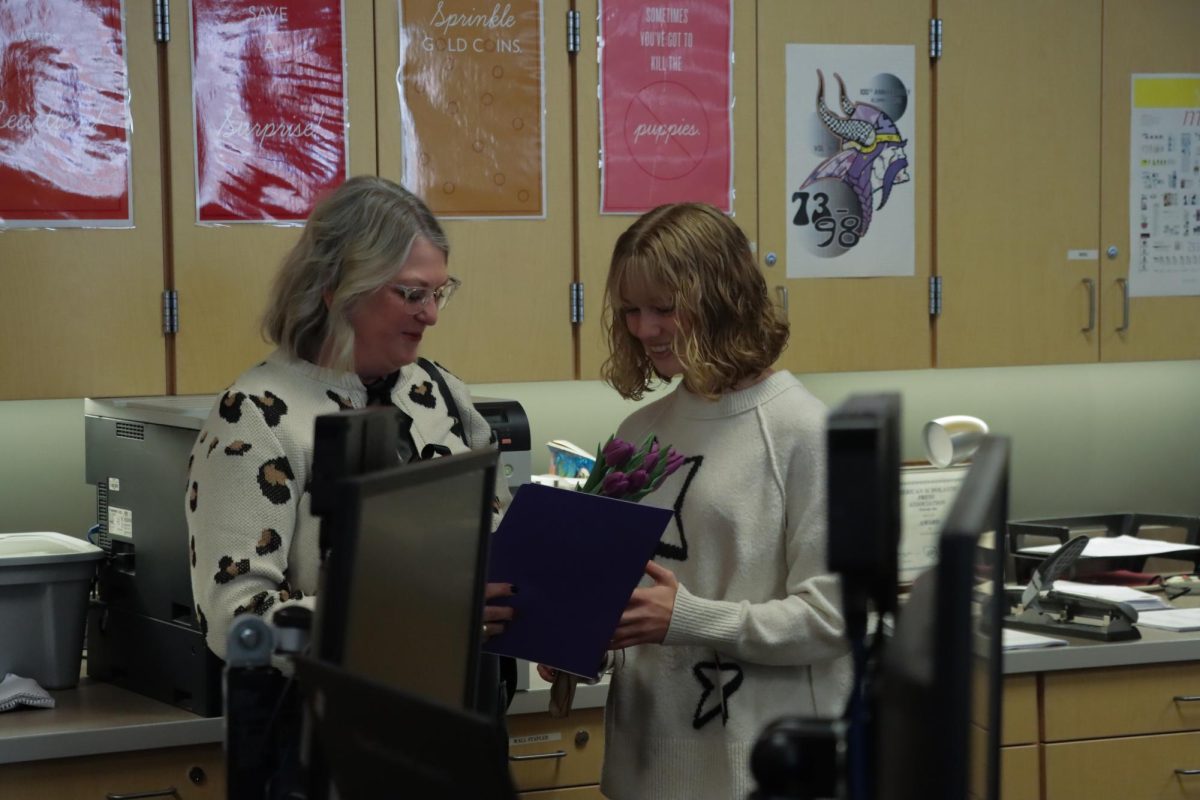Foreign exchange students have added to the diversity and culture here at Puyallup High School.
Six seniors and two juniors joining PHS from Spain, France, Japan and Italy have left their home countries for a year to experience culture in America.
Studying abroad also means leaving your family, friends and home country. Although the exchange students have been here for about three months, most say they haven’t experienced homesickness yet.
“Being alone is difficult sometimes but the advice I give to all exchange students is that you’re not going to see your friends and family for one year and the possibility that you’re going to see your friends from here are very low,” senior Illenia Reale from Spain said. “The best thing is living in the moment because you’re going to want to live in the experience.”
Other students agreed on the importance of living in the moment and making the most of their time here. For many of them, it is their only opportunity to get education in the U.S.
“I just think about the time I’m having here; that is a unique thing,” senior Mattia Parlani, from Italy said. “I’m lucky to be here and I will be with my family in eight months and see them for the rest of my life.”
Part of moving to a new school means making new friends and trying to fit in. For some of the exchange students, sports played a huge role in getting settled.
“Playing football has been my biggest experience…going under the lights of Sparks Stadium and playing there with your whole high school supporting you is crazy,” senior Javier Sequeiro said. “We don’t have that in Spain and I have been the only one in my exchange program that went this far. Honestly post season was like a Christmas present!”
Meeting new people and speaking English isn’t the most major change these students have to make. For most of them, America provides a huge culture shock.
Although they are feeling more at home, some are still experiencing a culture shock. Rida Riaz is from Pakistan, where women are in a different light than here in Washington.
“There are a lot [of social and cultural differences] since we are an Islamic country. It isn’t common for teenage girls and boys to date in Pakistan. Also in my family only girls can wash the dishes,“ Riaz said.
A lot of the cultural differences talked about were centered around the importance of food.
“It is holy back home. We also didn’t eat until 8:30 or 9 p.m.,” Reale said.
Riaz said her reason for becoming a foreign exchange is that she wants to see how the world works.
“In Pakistan there is a lot of discrimination against women and if you live there you wouldn’t feel it but then I come here and there are so many things I’m shocked to know that has been happening for my entire life and I never would’ve known about it,‘’ Riaz said.
Reale said that since she was already once a foreign exchange student once in Australia for three months she wanted to try it out again for a longer period of time. She also wanted to improve her English.
“I feel like I am living here better than how I am living my three months in Australia. I saw how much I changed after that experience and I wanted to do it again,” Reale said.
Some students also hope this will not be their last time in America. Many of them wish to come back for college or even to live permanently.
“I wish I could come here [for] UW [University of Washington] because it’s so good for medical school, so I wish I could do a program out here for a year,” Sequeiro said.
A sense of independence is common when being a exchange student, even here in Washington.
‘’When you’re an exchange student you’re literally alone in another country where you don’t know anyone and you have to become more independent. I saw that I became more independent after Australia and I know after this year I am going to be even more independant,” Reale said.
Senior Maria Rauvere from Spain, added on that it was really hard to get around and be completely independent because Washington doesn’t have very good public transportation or underground system.
Rauvere says public transportation in Spain ranges from modern metros to well-connected speed rails between major Spanish cities and it’s among the best in Europe.

